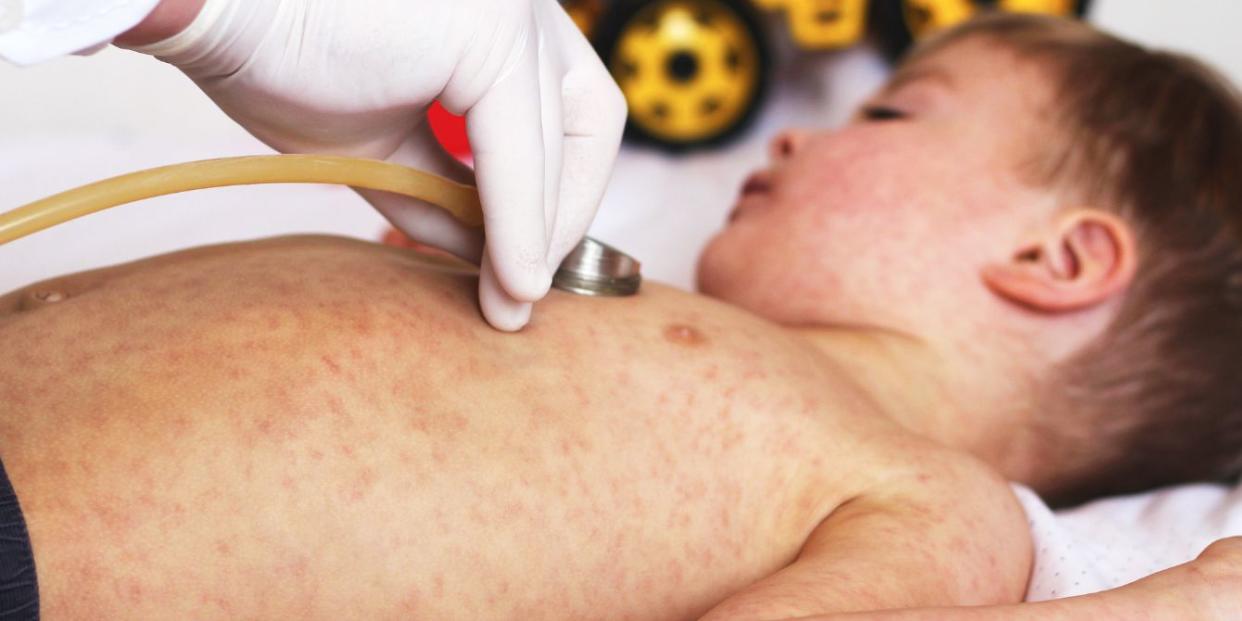Measles outbreaks have been reported in multiple states, AAP says

Following the news earlier this month of a measles outbreak at a daycare facility in Philadelphia, Penn., The American Academy of Pediatrics (AAP) reports that cases have now been confirmed in multiple states, including Delaware, Georgia, New Jersey, Virginia and Washington state, in addition to Pennsylvania.
The highly contagious disease can be transmitted via droplets or by airborne spread when a person infected with the virus breathes, coughs or sneezes. Officials note that the virus can survive in the air for two hours after an infected person leaves an area. Measles has been declared eradicated from the US since 2000, but cases can still arise through unvaccinated travelers and can spread in under-immunized communities, the Centers for Disease Control and Prevention (CDC) says.
Once a common childhood disease, measles can impact anyone but is especially dangerous for children under 5, pregnant people, and those with weakened immune systems. The disease can result in complications like pneumonia, brain damage, deafness and can be fatal, AAP says.
Symptoms of measles may include:
Fever as high as 105ºF
Cough
Runny nose
Watery eyes
Rash with raised and flat sections that begins on the head and face and spreads downward
Infected people are usually contagious from four days before the rash starts through four days after the rash develops. Measles has a long incubation period, which is why it can spread so rapidly. From exposure to fever is usually about 10 days (with a range of 7-12 days), and from exposure to rash onset is usually about 14 days (with a range of 7-21 days).
Most adults and kids have likely already been vaccinated against measles, but, thanks to the pandemic, large numbers of kids are still behind on their routine childhood vaccinations, meaning that some kids could be left unprotected.
A recent CDC study found that 93% of kindergartners were fully vaccinated against measles during the 2022-23 school year, but it was the third consecutive year the vaccination rate was below the target of 95%, and officials estimated about 250,000 kindergartners remain at risk, AAP reports.
State health officials are urging residents who are not vaccinated to get the MMR vaccine, which protects against measles, mumps, and rubella, as well as remain isolated for 21 days if they were exposed to the virus.
The first dose of the MMR vaccine is typically given between 12 and 15 months of age, with a second dose between 4 and 6 years. Having been administered for more than 50 years, the MMR vaccine is proven safe and effective at preventing measles, the Delaware Health and Social Services agency states. “Testing shows the vaccine to be 97% effective at preventing measles for those who have received two doses of the MMR vaccine and are not severely immunocompromised.” It’s worth checking with your child’s pediatrician to ensure that your little one is up to date on a vaccine for this preventable disease and to help stop the spread.


